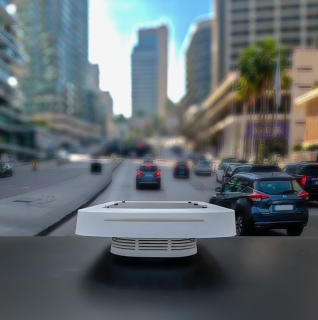🌍 Join the Senseable Amsterdam Lab (SAL) - a collaboration between AMS Institute and MIT.
📊 Unleash the power of data to design novel climate-neutral solutions.
🔍 Explore real-time environmental monitoring, thermal storage, decarbonizing construction, and water quality sensing technologies.
🚀 Partner with us to pioneer new research tracks for a greener tomorrow.
If you have ideas or suggestions, please reach out to Titus Venverloo - tvenver@mit.edu
The MIT Senseable Amsterdam Laboratory
Sensors embedded throughout the city, and pervading our lives, generate data at unprecedented scales. This gives unique opportunities to understand and design cities in novel ways — for this, we need new methods and tools.
The Senseable Amsterdam Laboratory (SAL) is a groundbreaking research initiative between AMS Institute and the Massachusetts Institute of Technology (MIT) that challenges what exists today by introducing novel data — and science-based methods to help the City of Amsterdam transition to a carbon-neutral city. SAL research will contribute to improving the quality of life in Amsterdam based on the development of critical scientific research, with the potential of extending its innovations to other cities worldwide.
SAL currently works on 4 research tracks, as listed below. SAL is looking for new research partners to contribute to these tracks or develop new research projects. Research partners could support us financially by joining our research consortium, with large datasets, or as advisory partners. In case you or your organization has ideas about how the unique technical knowledge MIT could contribute to making Amsterdam climate-neutral, feel free to reach out to the MIT Senseable Amsterdam Laboratory lead, Titus Venverloo: tvenver@mit.edu.
Senseable Amsterdam Laboratory Research Tracks
1. Real-time environmental monitoring
We are deploying radically affordable mobile sensors in the urban environment to measure climate-related stresses and hyperlocal greenhouse gas (GHG) emissions. In this project, we develop low-cost air quality sensors that are mounted on service vehicles, such as taxis, garbage trucks, and buses. These sensors provide real-time insights into local pollutants, GHG emissions, and climate stresses in Amsterdam.
2. Thermal storage
Develop solutions to harness the cooling and heating power of water in Amsterdam. In addition, by making heating and cooling buildings more efficient in Amsterdam we could have a significant impact on the total CO2 emissions of the city. Hence, in this research, we will explore the potential of aqua thermal storage and exchange solutions in the context of Amsterdam’s historic canal system.
3. Decarbonizing Construction
Here we focus on how novel data collection systems can reduce the GHG emissions from new developments in Amsterdam. Firstly, we collect air quality data around construction sites to evaluate the local impacts of construction. Secondly, we aim to develop AI models that can identify and quantify building components from demolition sites, enabling more reuse in the construction sector.
4. Water Quality Sensing
Due to increasing temperatures - harmful algae can bloom quicker in the canals of Amsterdam. We are developing a state-of-the-art mobile water quality sensor that can identify harmful species of algae, providing a real-time monitor of algae in Amsterdam.





